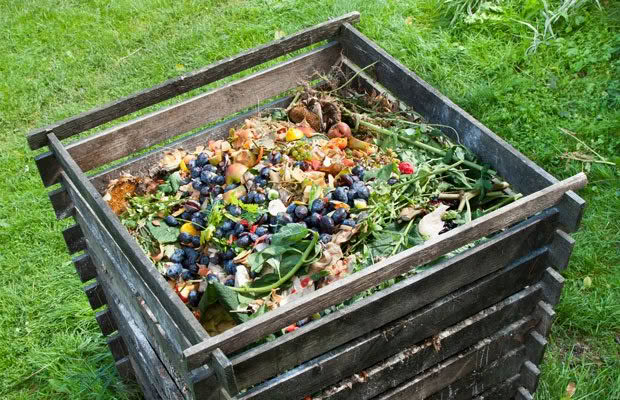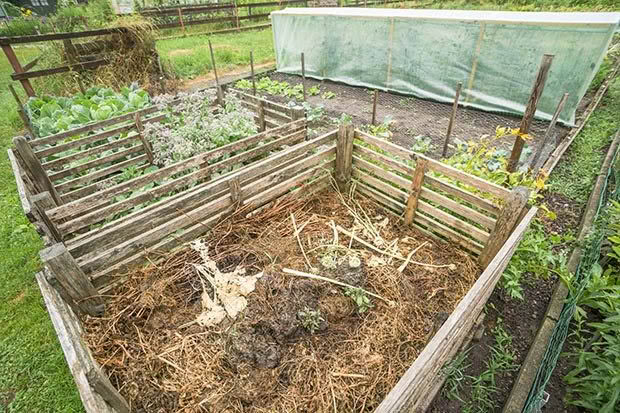6 tips for composting in winter

As temperatures tumble, the process of composting slows down, but it doesn’t stop altogether. The outside layers of your compost heap may be cool, but the inside layers will continue to decompose if the right materials are added.
1. The decomposition process is driven by microbes, so you need to add ‘food’ continuously, a mix of nitrogen and carbon. Nitrogen materials include grass clippings, fruit and vege scraps, chicken manure, tea leaves and coffee grounds. Carbon materials include dry straw, torn paper, cardboard, small twigs, dead leaves, old potting mix, sawdust and wood ash.
2. Keep the ingredients as warm as possible. You do this by layering materials on your compost heap (as you would for hot composting) and keeping it watered. With enough carbon, nitrogen, water and oxygen, the compost heap heats up quickly, and microbes multiply and break down the materials. Every time you throw in a bucket of kitchen scraps, top it with a layer of brown leaves, sawdust, or other carbon material. The carbon layer acts as insulation, trapping heat inside.

3. Chop everything into smaller pieces. Materials added to your heap in winter are best chopped finely so that they break down more quickly. The easiest way to do this is to run your lawn mower over them a couple of times. Chop twigs and cuttings to a size no bigger than 5cm.
4. Water. Even during winter your compost heap needs moisture. Winter winds can suck your heap dry, and microbes need water to survive. If your heap is covered from the elements, make sure you water it regularly.
5. Insulate the outside of your heap. Hay bales stacked around the heap help keep it warm. You can also cover your heap with a tarp or black plastic to prevent heat from escaping. Another option is to line your winter compost bin with thick cardboard or leftover/recycled polystyrene (line with cardboard so you don’t end up with beads in your compost).
6. Lastly, make sure you site your compost heap in full sun. There’s nothing like solar power to keep your heap warm. The microbes will certainly thank you if they’re toasty warm during winter.
READ MORE
Dr Compost Ben Elms’ recipe for a good life and tips for top compost
Love this story? Subscribe now!
 This article first appeared in NZ Lifestyle Block Magazine.
This article first appeared in NZ Lifestyle Block Magazine.
